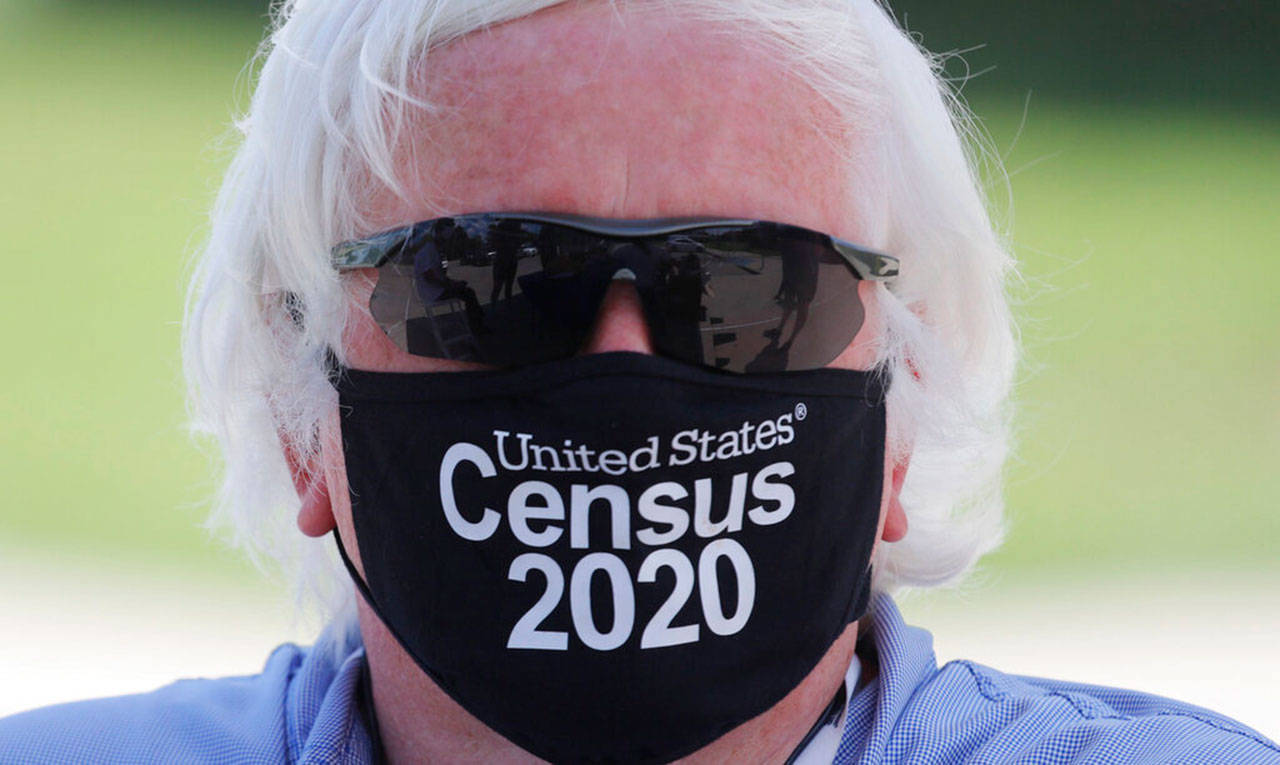By The Herald Editorial Board
Have you made certain you count?
Or in other words, have you responded to the 2020 census, completing your census questionnaire online, by mail or during a brief interview with a U.S. Census Bureau employee?
The census, taken every 10 years, provides vital information about population and basic demographics that is used:
By state governments to apportion representatives for Congressional, legislative and other districts and to draw their boundaries;
By the federal government to determine each state’s share of federal funding for programs including Medicaid, highway and transportation funding, federal student loans and Pell Grants, Supplemental Nutrition Assistance Program, business and industry loans, Head Start, homeland security grants, Community Development Block Grants, home loans and housing assistance, crime victim assistance, senior meals, other assistance programs and more; and
By local governments and businesses as they plan for their communities and to serve their customers.
But with the Census Bureau expected to compile and report those numbers by the end of the year, self-reporting rates of response have lagged so far. Nationwide, just under 64 percent of households have completed census questionnaires, meaning more than a third have not.
For Washington state, 69.6 percent of residents have completed their census forms; that’s a high enough response rate to put the state third among the 50 states, the District of Columbia and Puerto Rico. But that still means that about 3 of every 10 people in Washington state have not been counted.
Drilling down to more local numbers shows a range of response rates. At the county level, Snohomish County ranks fourth with a response rate of 72.9 percent, according to a U.S. Census Bureau online dashboard. Among local cities, about 80 percent of Edmonds and Mukilteo households have completed the census; most other cities in the county range from about 73 percent for Marysville, Arlington and Stanwood to about 77 percent for Lake Stevens and Bothell. But only 68 percent of households in Everett — the county’s largest city — have responded; and only 60 percent of residences within the Tulalip Tribes reservation have responded.
During a typical census year, U.S. Census Bureau workers would follow-up with a door-knocking campaign to interview those who hadn’t yet completed forms. But 2020 has been anything but a normal year. Because of the coronavirus pandemic, the Census Bureau earlier made plans to give itself more time to reach those who hadn’t responded.
But even as the pandemic complicates the bureau’s follow-up work, the Trump administration announced at the start of the month that it was ordering the bureau to wrap up its count a month earlier that planned — by Sept. 30 — rather than the end of October, so that a final count can be forwarded to the White House, and then Congress by the end of the year. Initially, the bureau had asked to be given until April 2021 to present the final numbers; and the House approved that request. But the Senate didn’t put the matter to a vote, and Trump issued his executive order pushing the deadline up a month.
Put simply, Trump’s order refuses to recognize the difficulties in administering a complete and crucial count of those living within the United States during a pandemic; and ignores the importance of a census that occurs only once every 10 years. If the nation doesn’t get this right this year, it will be 2030 before another count will be made.
On top of a hurried completion of the census, the Trump administration also — again by executive order — recently ordered that undocumented residents be removed from the census count used to determine Congressional representation and allocation of federal resources.
This order comes after last year’s Supreme Court decision that denied the U.S. Commerce Department’s attempt to put a citizenship question on census forms, a decision that found the agency’s justification for the question as being “contrived.”
So without a citizenship question asked during the census, the Trump administration now wants to go around the court and muddle the census results using information on citizenship compiled by the Department of Homeland Security, the Social Security Administration and other federal sources, to identify undocumented immigrants and erase them from the count.
While the Trump administration and others hold that issues of representation and allocation of resources should be based only on the number of citizens — or even just registered voters — that’s not what’s written in the U.S. Constitution. The Constitution, which elsewhere makes distinctions among citizens, residents and “aliens,” specifically holds that congressional districts be drawn according to “the whole number of persons” recorded in the census. Federal courts have upheld that interpretation for more than 200 years.
Challenges in court — and perhaps another opportunity for Supreme Court justices to slap down a “contrived” effort — are likely against the Trump administration’s attempts to meddle with the census, similar to its recent interference with the U.S. Postal Service.
Regardless of that outcome, however, we are left with the constitutional importance of the count itself and the need for all to make sure they have been counted and that they will be represented at all levels of government. If you have yet to complete the census, stand and be counted.
Make it count
If you haven’t completed the 2020 census, go to my2020census.gov or call 844-330-2020.
Talk to us
> Give us your news tips.
> Send us a letter to the editor.
> More Herald contact information.

























